In 1770s Boston, Phillis Wheatley was at the same time enslaved and an international celebrity: a writer who mastered the most persuasive rhetoric of the day to publish enduring arguments about freedom. Inaugural poets Amanda Gorman and Richard Blanco, writer Clint Smith, and scholars Glenda Carpio and Henry Louis Gates, Jr. join host Elisa New to read two of Wheatley’s poems for public occasions.
Special thanks to our humanities advisers: Raquel Kennon & Adam Bradley.
Interested in learning more? Poetry in America offers a wide range of courses, all dedicated to bringing poetry into classrooms and living rooms around the world.
To the University of CAMBRIDGE,
in NEW-ENGLAND.
WHILE an intrinsic ardor prompts to write,
The muses promise to assist my pen;
‘Twas not long since I left my native shore
The land of errors, and Egyptian gloom:
Father of mercy, ‘twas thy gracious hand
Brought me in safety from those dark abodes.
Students, to you ‘tis giv’n to scan the heights
Above, to traverse the ethereal space,
And mark the systems of revolving worlds.
Still more, ye sons of science ye receive
The blissful news by messengers from heav’n,
How Jesus’ blood for your redemption flows.
See him with hands out-stretcht upon the cross;
Immense compassion in his bosom glows;
He hears revilers, nor resents their scorn:
What matchless mercy in the Son of God!
When the whole human race by sin had fall’n,
He deign’d to die that they might rise again,
And share with him in the sublimest skies,
Life without death, and glory without end.
Improve your privileges while they stay,
Ye pupils, and each hour redeem, that bears
Or good or bad report of you to heav’n.
Let sin, that baneful evil to the soul,
By you be shunn’d, nor once remit your guard;
Suppress the deadly serpent in its egg.
Ye blooming plants of human race divine,
An Ethiop tells you ‘tis your greatest foe;
Its transient sweetness turns to endless pain,
And in immense perdition sinks the soul.
His Excellency General WASHINGTON.
CELESTIAL choir! enthron’d in realms of light,
Columbia’s scenes of glorious toils I write.
While freedom’s cause her anxious breast alarms,
She flashes dreadful in refulgent arms.
See mother earth her offspring’s fate bemoan,
And nations gaze at scenes before unknown!
See the bright beams of heaven’s revolving light
Involv’d in sorrows and the veil of night!
The goddess comes, she moves divinely fair,
Olive and laurel binds her golden hair:
Wherever shines this native of the skies,
Unnumber’d charms and recent graces rise.
Muse! bow propitious while my pen relates
How pour her armies through a thousand gates:
As when Eolus heaven’s fair face deforms,
Enwrap’d in tempest and a night of storms;
Astonish’d ocean feels the wild uproar,
The refluent surges beat the sounding shore;
Or thick as leaves in Autumn’s golden reign,
Such, and so many moves the warrior’s train.
In bright array they seek the work of war,
Where high unfurl’d the ensign waves in air.
Shall I to Washington their praise recite?
Enough thou know’st them in the fields of fight.
Thee, first in place and honours,–we demand
The grace and glory of thy martial band.
Fam’d for thy valour, for thy virtues more,
Hear every tongue thy guardian aid implore!
Once century scarce perform’d its destin’d round,
When Gallic powers Columbia’s fury found;
And so may you, whoever dares disgrace
The land of freedom’s heaven-defended race!
Fix’d are the eyes of nations on the scales,
For in their hopes Columbia’s arm prevails.
Anon Britannia droops the pensive head,
While round increase the rising hills of dead.
Ah! cruel blindness to Columbia’s state!
Lament thy thirst of boundless power too late.
Proceed, great chief, with virtue on thy side,
Thy every action let the goddess guide.
A crown, a mansion, and a throne that shine,
And gold unfading, WASHINGTON! be thine.
To the University of CAMBRIDGE,
in NEW-ENGLAND.
WHILE an intrinsic ardor prompts to write,
The muses promise to assist my pen;
‘Twas not long since I left my native shore
The land of errors, and Egyptian gloom:
Father of mercy, ‘twas thy gracious hand
Brought me in safety from those dark abodes.
Students, to you ‘tis giv’n to scan the heights
Above, to traverse the ethereal space,
And mark the systems of revolving worlds.
Still more, ye sons of science ye receive
The blissful news by messengers from heav’n,
How Jesus’ blood for your redemption flows.
See him with hands out-stretcht upon the cross;
Immense compassion in his bosom glows;
He hears revilers, nor resents their scorn:
What matchless mercy in the Son of God!
When the whole human race by sin had fall’n,
He deign’d to die that they might rise again,
And share with him in the sublimest skies,
Life without death, and glory without end.
Improve your privileges while they stay,
Ye pupils, and each hour redeem, that bears
Or good or bad report of you to heav’n.
Let sin, that baneful evil to the soul,
By you be shunn’d, nor once remit your guard;
Suppress the deadly serpent in its egg.
Ye blooming plants of human race divine,
An Ethiop tells you ‘tis your greatest foe;
Its transient sweetness turns to endless pain,
And in immense perdition sinks the soul.
His Excellency General WASHINGTON.
CELESTIAL choir! enthron’d in realms of light,
Columbia’s scenes of glorious toils I write.
While freedom’s cause her anxious breast alarms,
She flashes dreadful in refulgent arms.
See mother earth her offspring’s fate bemoan,
And nations gaze at scenes before unknown!
See the bright beams of heaven’s revolving light
Involv’d in sorrows and the veil of night!
The goddess comes, she moves divinely fair,
Olive and laurel binds her golden hair:
Wherever shines this native of the skies,
Unnumber’d charms and recent graces rise.
Muse! bow propitious while my pen relates
How pour her armies through a thousand gates:
As when Eolus heaven’s fair face deforms,
Enwrap’d in tempest and a night of storms;
Astonish’d ocean feels the wild uproar,
The refluent surges beat the sounding shore;
Or thick as leaves in Autumn’s golden reign,
Such, and so many moves the warrior’s train.
In bright array they seek the work of war,
Where high unfurl’d the ensign waves in air.
Shall I to Washington their praise recite?
Enough thou know’st them in the fields of fight.
Thee, first in place and honours,–we demand
The grace and glory of thy martial band.
Fam’d for thy valour, for thy virtues more,
Hear every tongue thy guardian aid implore!
Once century scarce perform’d its destin’d round,
When Gallic powers Columbia’s fury found;
And so may you, whoever dares disgrace
The land of freedom’s heaven-defended race!
Fix’d are the eyes of nations on the scales,
For in their hopes Columbia’s arm prevails.
Anon Britannia droops the pensive head,
While round increase the rising hills of dead.
Ah! cruel blindness to Columbia’s state!
Lament thy thirst of boundless power too late.
Proceed, great chief, with virtue on thy side,
Thy every action let the goddess guide.
A crown, a mansion, and a throne that shine,
And gold unfading, WASHINGTON! be thine.

“Writing, to Phillis Wheatley, was freedom,” said 2021 Presidential Inaugural poet Amanda Gorman. “And she was doing it precisely at a moment in which our country was becoming a country in the first place.”
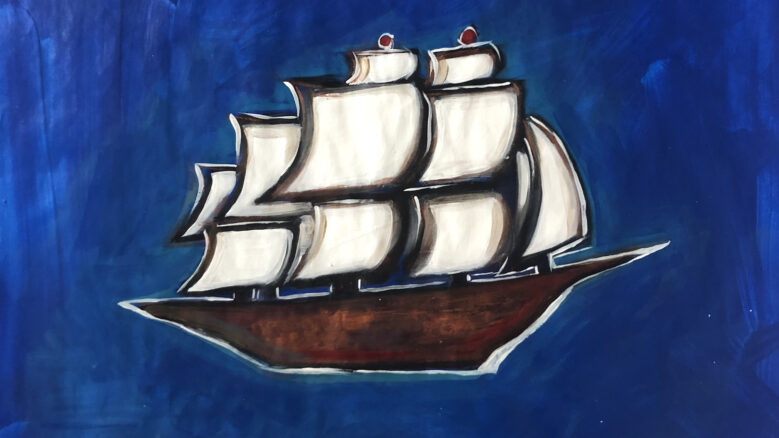
Boston was a colonial port city, built on sea trade with Britain and with Britain's Caribbean outposts. That trade included slave-produced commodities, and, indeed, many of Boston’s leading citizens derived their wealth from these commodities. Image Credit: Wendy Ultan
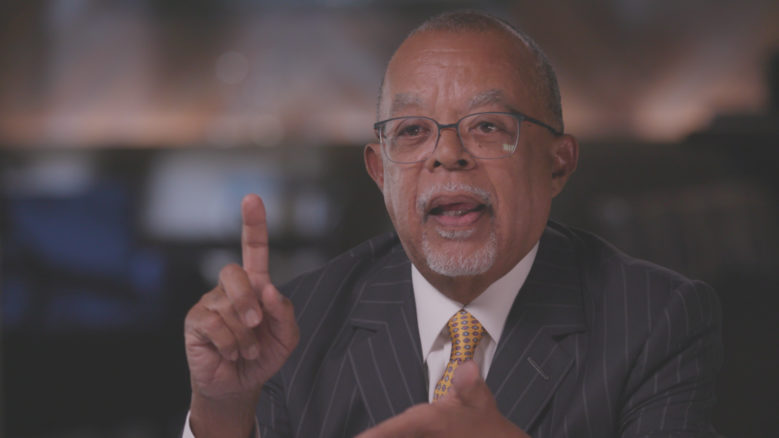
Harvard Professor, author, and host of PBS’s Finding Your Roots, Henry Louis Gates, Jr. reflects on Wheatley’s legacy: “She is a revolutionary. Phillis Wheatley is the mother of the African-American literary tradition.”
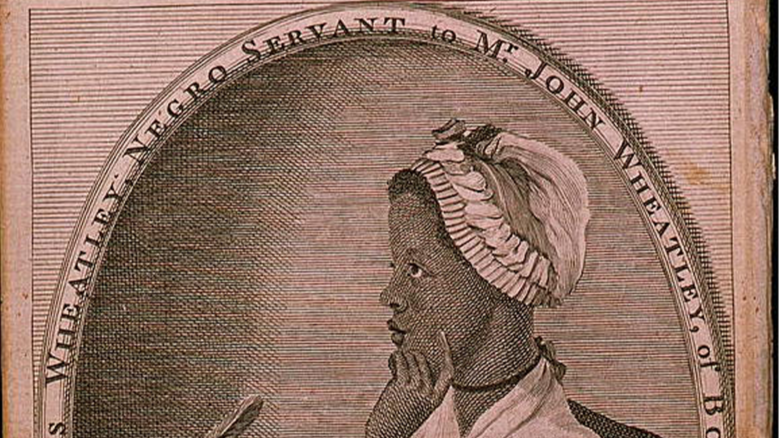
Brought as a child from West Africa to Boston on a ship called the Phillis, Wheatley’s poetry sheds light on a period when slavery was common. Of her treatment of race in "To The University", Henry Louis Gates Jr. says: “There's no reason for her to mention her Blackness. And she wasn't from Ethiopia, but Ethiop was a metaphor for Black. Ethiop is Greek for burnt face. And it's one of the words like Sudan or Niger, for land of the Blacks. But she names her Blackness there, and she is doing it to stake a claim on behalf of Black people.” Image credit: Library of Congress.
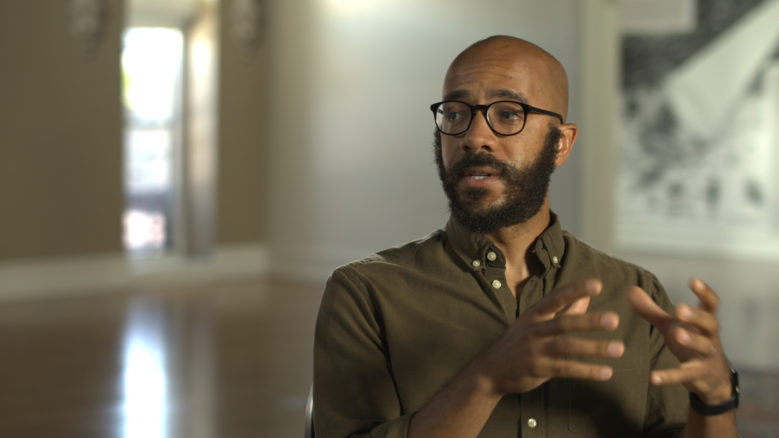
Of the literary tradition which began with Wheatley, writer and poet Clint Smith notes: “What Black Americans have always done is take the things which have been used as a tool or weapon of oppression, and transform it into something emancipatory.”
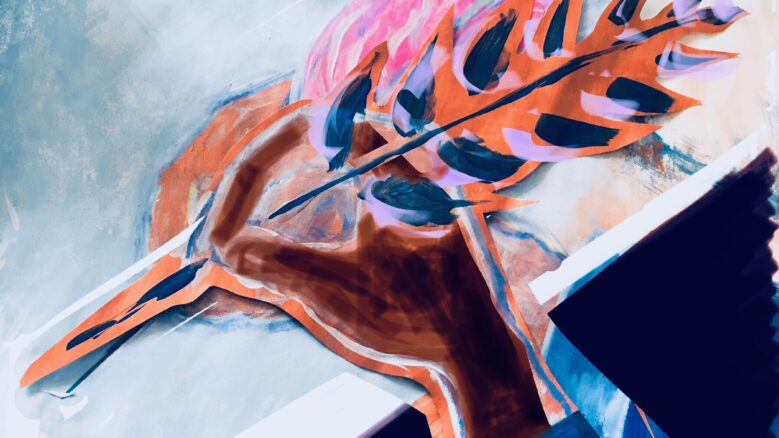
“WHILE an intrinsic ardor prompts to write, The muses promise to assist my pen; ‘Twas not long since I left my native shore The land of errors, and Egyptian gloom: Father of mercy, ‘twas thy gracious hand Brought me in safety from those dark abodes.” So opens “To His Excellency General Washington.” It can be hard to imagine what it meant for Wheatley, enslaved and in her early twenties, to be able to write and publish, much less to a General. The poem’s invocation of strength is both an act of humility and genuine article of faith. Image Credit: Wendy Ultan.
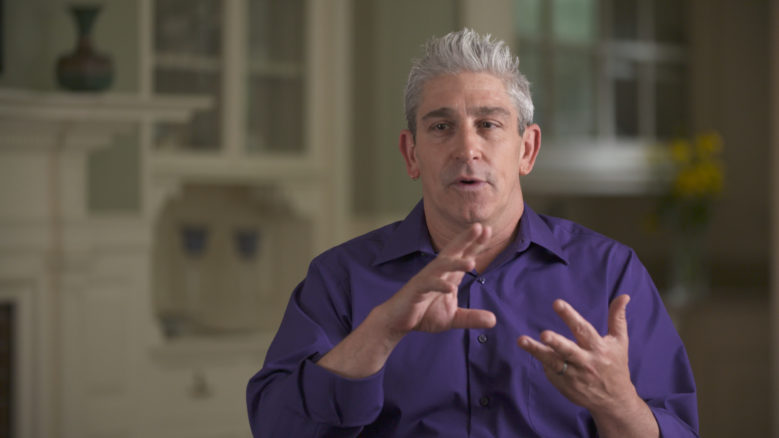
2013 Presidential Inaugural poet Richard Blanco notes: “One of the things that really pops up for me with Wheatley is the sort of unveiling of herself as a poet within the poem. There's kind of like this 'meta' quality where some poems can sound like disembodied voices. With Wheatley, I feel there's a real person there, a real person saying: ‘I'm writing.’”
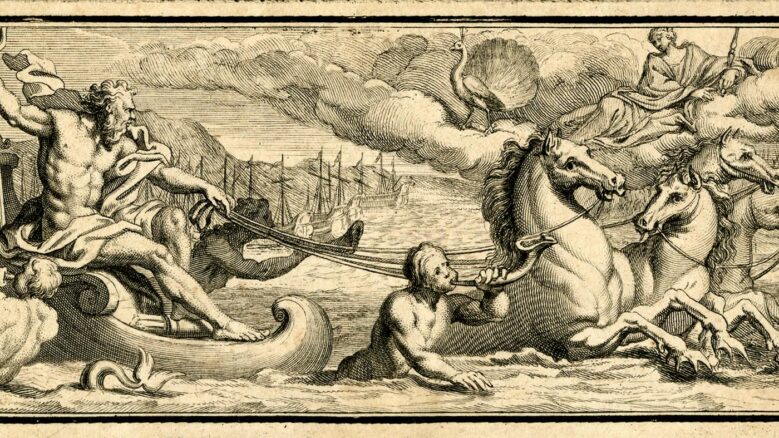
This painting by the 18th century English engraver George Vertue pictures Neptune riding his chariot, and is one of endless invocations of Greek mythology in Western art and literature. Traditionally, the ability to be conversant in the classics is thought of as a mark of distinction and high learning. Even after Wheatley had gotten literary signatories to attest that her poems were genuine, doubters continued to question her familiarity with the classics: How could a young enslaved woman know so much about the most rarified vista of Western culture? Her existence and legitimacy stood in stark contrast to the prejudices of the day. Image Credit: British Museum.